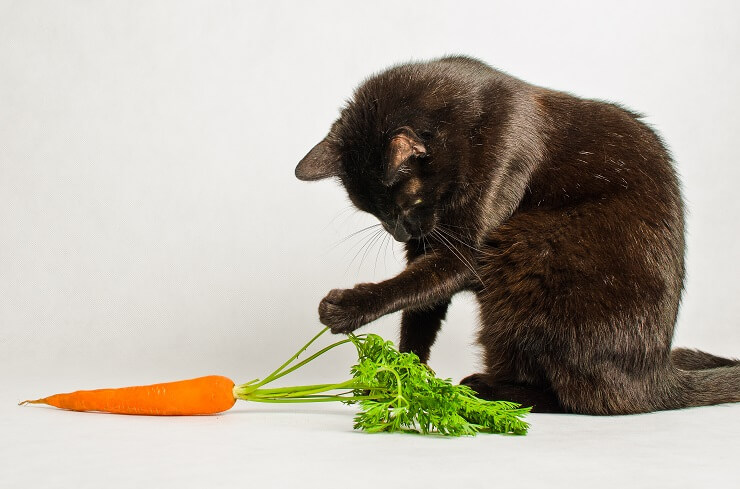
Carrots are an exceptionally healthy snack for humans, containing large amounts of fiber and plenty of healthy vitamins and minerals, despite having hardly any calories. But if you’re enjoying a carrot snack, you might be wondering whether you can share some with your cat.
If your cat enjoys it, they can eat this healthy root vegetable a couple of times a week. Carrots are safe for cats to eat and are present in more than 20% of all canned cat foods.Quick Overview: Can Cats Eat Carrots?





Summary of Content
Should Cats Eat Carrots?
The great news is that cats can eat carrots. According to the ASPCA, the root of the carrot plant is not toxic for cats. In fact, they even recommend giving it as a safe snack. As mentioned above, carrots are also a common ingredient in cat food, added for their usefulness as a prebiotic.
Carrots can be fed raw or cooked, but most cats will prefer them cooked as they’re quite crunchy, which can be off-putting. It’s a good idea to try cooking carrots by boiling, steaming, or microwaving before you offer them to your cat as a healthy treat.
If you prefer to feed carrot raw, try grating it or chopping it into small pieces over your cat’s food. Carrots are a safe vegetable to share with your feline friend either raw or cooked.
You should also remember that some cats shouldn’t have carrots. If your cat has health problems, or is prone to digestive upset, you should seek veterinary advice before feeding carrot.
Are Carrots Good for Cats?
Cats can safely eat carrots, but is there any health benefit to them doing so? Are carrots good for cats?
Antioxidants
Carrots are an antioxidant powerhouse, and contain several carotenoids – which were named after carrots! Beta-carotene, alpha-carotene, lutein, lycopene, and polyacetylenes are all antioxidants found in carrots to varying degrees. Whilst dated studies thought that cats and dogs were unable to absorb beta carotene from their diet, this has now been disproven.
Carotenoids are thought to have lots of benefits for humans, including a reduction in the risk of several types of cancers. However, it’s not yet clear whether any of these benefits occur in cats. One study did show that lutein improves the immune system of cats.
Fiber
Carrots are a great source of fiber for cats, containing both soluble fiber and insoluble fiber. Soluble fibers feed the good bacteria of the gut, and slow down the digestion of sugars, preventing a blood sugar spike and giving raw carrots a low glycaemic index.
Insoluble fibers provide bulk to the stool and help the digestive system to move along normally, preventing constipation. They also help cats to feel ‘full’ or satiated, which has benefits for weight loss diets and preventing feline obesity. In fact, carrots are sometimes added to pet food for these benefits.
How Much Carrot Can a Cat Eat?
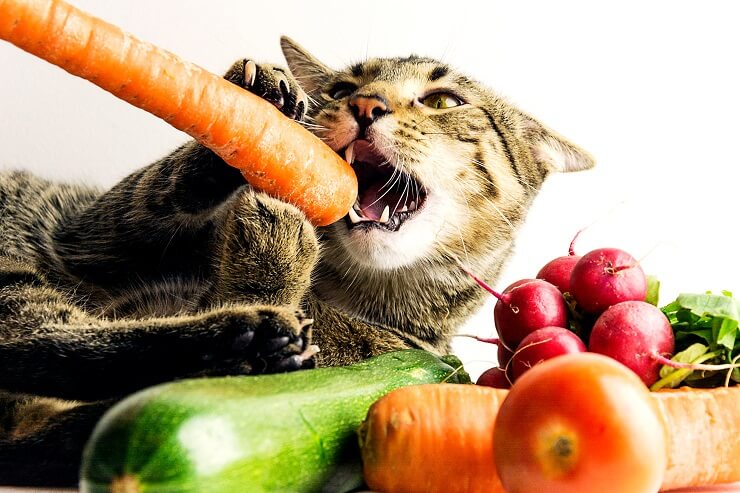
As with most foods, you can certainly have too much of a good thing. The fiber content of carrots can cause an upset stomach, leading to diarrhea.
For greedy felines, too much carrot over several days may even lead to hypervitaminosis A – an overdose of vitamin
A. This is a theoretical risk, more than a real one – most cats don’t like carrot nearly enough to have that as a risk!
Are Carrots Bad for Cats?
Although carrot is considered a low-calorie food, it can still cause weight gain if too many carrots are consumed. Carrots should be counted in the ‘treat portion’ of your cat’s diet, which should be no more than 10% of their daily calorie allowance.
For an average 9lb cat, that’s about 20 calories, or about 50g of carrots, assuming they don’t have any other cat treats that day. Again, 50g of carrots is a lot, and chances are your cat won’t be willing to eat this much carrot…
A good rule of thumb is to feed your carrot no more than a thumb-sized piece of carrot daily. As with most vegetables, your cat will likely prefer to eat cooked carrot. You should also take care to cut the carrot into bite-sized pieces to reduce the risk of choking.
The first time you feed your cat carrot you should give only a piece the size of your thumbnail. If they eat it, monitor them for the next 48 hours to ensure they don’t suffer from side effects.
Final Thoughts

If your cat has snaffled a slice of carrot already, you’ll be pleased to hear that carrots are safe for cats to eat. But, just because cats can eat carrot doesn’t meant they’ll want to.
If you want to try feeding carrots to your cat, start off with a cooked slice as a treat or with their normal food. If your cat enjoys it, they can eat this healthy root vegetable a couple of times a week. Other human foods may not be safe for cats though, so do check each food before offering them to your feline friend.
Frequently Asked Questions
Can kittens eat carrots?
Cats can start eating carrots as soon as they are on solid food. However, you should bear in mind that raw carrot can be a choking hazard, so it’s best to cook the carrot and carefully cut it into pieces small enough for your kitten to eat.
Can I give my cat raw carrots?
Cats can eat raw carrots, but they probably won’t enjoy them. Raw carrots are harder for cats to eat, and the texture is likely to be offputting. Remember that raw carrot can be a choking hazard, so you need to cut it into small pieces or grate it.
What vegetables are safe for cats?
Other than carrots, you can also consider sharing veggies such as zucchini, green beans, winter squash, and steamed broccoli. However, it’s important to remember that cats are primarily carnivorous, and may not appreciate your vegetable offerings!
Can cats be vegetarian or vegan?
Cats are obligate carnivores, which means they cannot get all the nutrition they need without eating meat. Plants are missing the amino acid taurine, which is essential for cats. Whilst vegetarian and vegan diets may have synthetic taurine added, not enough research has been done to ensure that vegetarian diets are not harmful to cats.
-
http://www.allnaturalpetcare.com/Animal_Nutrition_Research/Canine_&_Feline_Nutritional_Immunology.pdf#page=33
-
https://www.aspca.org/news/pets-and-produce-top-tips-vegetable-garden-safety
-
https://www.aspca.org/pet-care/animal-poison-control/toxic-and-non-toxic-plants/carrot-flower



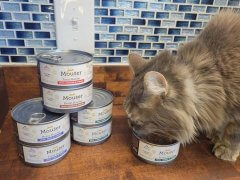

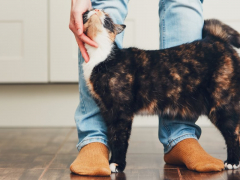
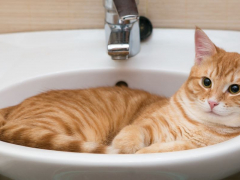
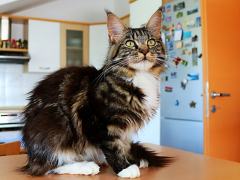
My cat has chronic pancreatitis! He also has urinary problems including blood in the urine & E. coli! Vet gave him Uromaxx liquid to put on his and mix it in! His last blood test showed his pancreatitis is in check! No more blood in the urine & the E. coli is gone. This Uromaxx is a fantastic product for urinary issues! I also give him Phytomaxx CBD oil everyday as well! He’s like a kitten again! My cat is 11 years old!!!!
That’s really awesome, but I’m not sure it’s on topic?